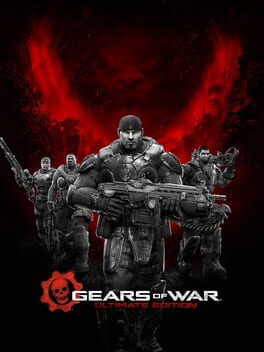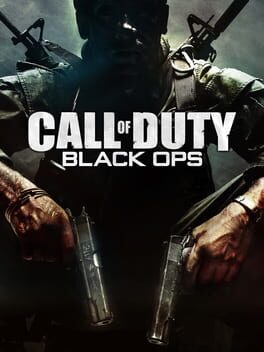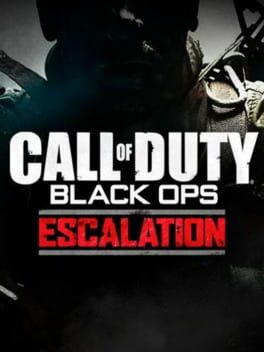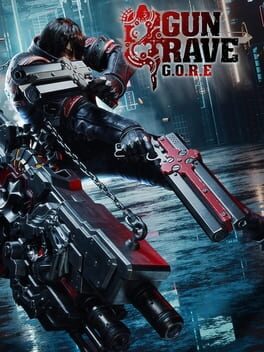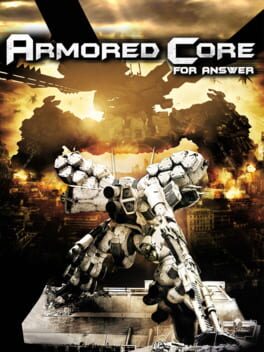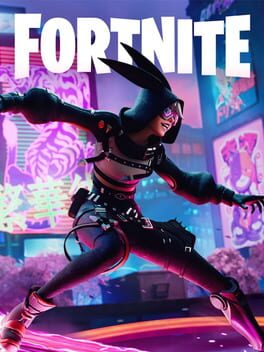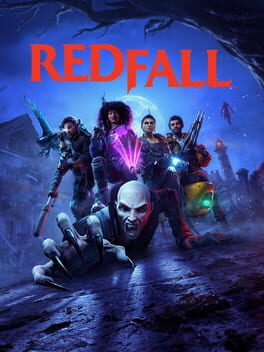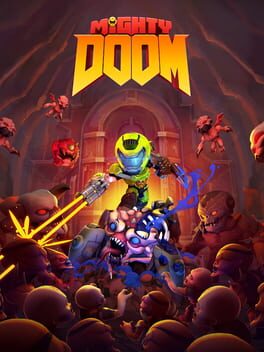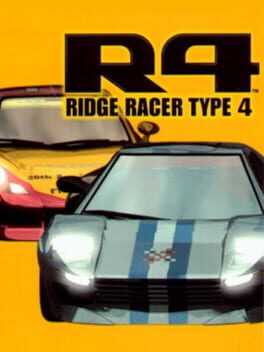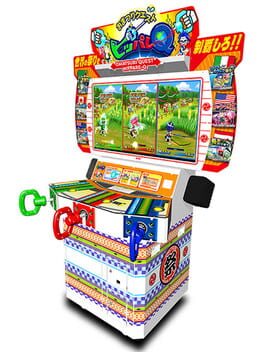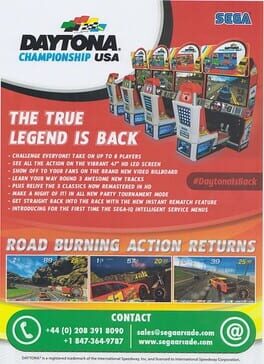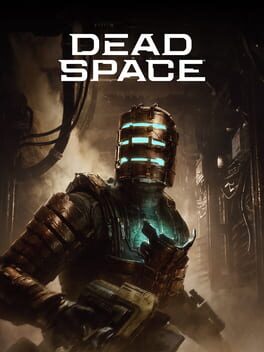NutzBerzerk
BACKER
Two steps forward, one step back. Tears of the Kingdom is another take on Breath of the Wild's more refreshing approach to open-world game design. With map markers on the scant side, and a truly open approach to tackling your objectives, it's a far more approachable world as opposed to the Ubisoft-hell design we've become accustomed to in recent years. Tears of the Kingdom further elaborates on this with the same map we had before, but with lots added on top (and below) it, retaining the sense of wonder and discovery from six years ago. Unfortunately, more than just the map and structure of the game were retained from BotW; the trademarked brittle weapons, obnoxious slippery surfaces, and much more return and have little to nothing to remedy the issue.
Being able to build unique weapons through the fusion mechanic to extend the life/increase the power of your arsenal is amazing, but means nothing when your weapons can barely survive a single combat encounter (if even that). It's understandable that Nintendo wants players to experiment with whatever they can scrape together, and it certainly feels rewarding to have a building experiment go perfectly; it's just frustrating when that weapon can't even handle two silver Bokoblins before it shatters.
Arguably more frustrating is how Nintendo pretends to provide a solution to issues such as climbing surfaces in the rain. An entire side quest is dedicated to obtaining an armor set that should make slippery surface climbing an ease, yet the armor feels as if it barely helps at all. This is compounded with elixirs that can be crafted that - allegedly - serve the same purpose, yet you still slide off of surfaces to a very annoying degree. Provide an actual solution to the problem or don't do it at all. Around 5 hours of my playthrough felt wasted grinding out the newspaper side quest for an armor set that doesn't even work as advertised.
Speaking of wastes of time, the hotly debated issue of Korok seeds and shrines rear their ugly head once again. Stumbling upon these things are fun in parts and can feel rewarding, but their sheer abundance and how vital grinding them out to have any sort of a chance in terms of item storage/health/stamina is aggravating. Out of the 125 hours I spent with this game, nearly 100 of those hours were grinding those shrines and seeds; hopping from one end of the map to another just to grind out another piece of the stamina wheel because Link has the stamina of a Spartan from Halo Reach gets very old after a while.
Inconsistency appears to be the name of the game. While there are many interesting things to discover and do within TotK's world, the magic wears off fast when you realize you're just playing another open world game but without the micromanaging map markers. For the most part, said map markers serve their purpose well and actually guide you to where you need to go, but Nintendo wants to have its cake and stick its dick in it too with several quests not guiding you to where you actually need to go. Vague hints and directions given by NPCs are going to be your primary mode of figuring out what the hell you're even doing in most of the Regional Phenomena quests; the Zora quest being the most obnoxious of the bunch, with several objectives being nowhere near where the marker tells you, leading to a few annoying scavenger hunts and eventually giving up by Googling the locations for certain things online. Either make your map markers do what they're supposed to all the time, or do not bother with them at all. This wishy-washy attitude towards telling the player what they're supposed to be doing in a concise manner is frustrating at best and infuriating at worst. Elden Ring had this in the bag with its yellow map arrow that only gave you the vague direction of your next objective, not beating you around the bush half the time like TotK.
Despite the litany of complaints I have towards this game, I cannot deny the magic it cast on me as I explored the world. Attempting to discover everything on your own is a phenomenal feeling for a long while: finding new weapon fusions, crafting mechanical contraptions to traverse the world, and discovering the Dragon Tears that reveal the intriguing backstory piecemeal are all a grand time. It is just a shame that so many of the breathtaking and fun elements of this game are worn down by old issues Nintendo only half-addressed and is attempting to run on hardware that just cannot handle what this game is throwing at it. I cannot say I'd ever jump into a fresh playthrough of this game again, but if Nintendo finally joins the 2010s in terms of hardware performance capabilities, it would be plenty fun to return to this experience with a consistent resolution and framerate.
Being able to build unique weapons through the fusion mechanic to extend the life/increase the power of your arsenal is amazing, but means nothing when your weapons can barely survive a single combat encounter (if even that). It's understandable that Nintendo wants players to experiment with whatever they can scrape together, and it certainly feels rewarding to have a building experiment go perfectly; it's just frustrating when that weapon can't even handle two silver Bokoblins before it shatters.
Arguably more frustrating is how Nintendo pretends to provide a solution to issues such as climbing surfaces in the rain. An entire side quest is dedicated to obtaining an armor set that should make slippery surface climbing an ease, yet the armor feels as if it barely helps at all. This is compounded with elixirs that can be crafted that - allegedly - serve the same purpose, yet you still slide off of surfaces to a very annoying degree. Provide an actual solution to the problem or don't do it at all. Around 5 hours of my playthrough felt wasted grinding out the newspaper side quest for an armor set that doesn't even work as advertised.
Speaking of wastes of time, the hotly debated issue of Korok seeds and shrines rear their ugly head once again. Stumbling upon these things are fun in parts and can feel rewarding, but their sheer abundance and how vital grinding them out to have any sort of a chance in terms of item storage/health/stamina is aggravating. Out of the 125 hours I spent with this game, nearly 100 of those hours were grinding those shrines and seeds; hopping from one end of the map to another just to grind out another piece of the stamina wheel because Link has the stamina of a Spartan from Halo Reach gets very old after a while.
Inconsistency appears to be the name of the game. While there are many interesting things to discover and do within TotK's world, the magic wears off fast when you realize you're just playing another open world game but without the micromanaging map markers. For the most part, said map markers serve their purpose well and actually guide you to where you need to go, but Nintendo wants to have its cake and stick its dick in it too with several quests not guiding you to where you actually need to go. Vague hints and directions given by NPCs are going to be your primary mode of figuring out what the hell you're even doing in most of the Regional Phenomena quests; the Zora quest being the most obnoxious of the bunch, with several objectives being nowhere near where the marker tells you, leading to a few annoying scavenger hunts and eventually giving up by Googling the locations for certain things online. Either make your map markers do what they're supposed to all the time, or do not bother with them at all. This wishy-washy attitude towards telling the player what they're supposed to be doing in a concise manner is frustrating at best and infuriating at worst. Elden Ring had this in the bag with its yellow map arrow that only gave you the vague direction of your next objective, not beating you around the bush half the time like TotK.
Despite the litany of complaints I have towards this game, I cannot deny the magic it cast on me as I explored the world. Attempting to discover everything on your own is a phenomenal feeling for a long while: finding new weapon fusions, crafting mechanical contraptions to traverse the world, and discovering the Dragon Tears that reveal the intriguing backstory piecemeal are all a grand time. It is just a shame that so many of the breathtaking and fun elements of this game are worn down by old issues Nintendo only half-addressed and is attempting to run on hardware that just cannot handle what this game is throwing at it. I cannot say I'd ever jump into a fresh playthrough of this game again, but if Nintendo finally joins the 2010s in terms of hardware performance capabilities, it would be plenty fun to return to this experience with a consistent resolution and framerate.
Team America World Police if it was played completely straight and entirely in the wrong about the Vietnam War. The gameplay quality is top-notch and the narrative has its Michael Bay-esque fun about it, but thinking about it for more than a second raises some eyebrows; good old fashioned American military propaganda that permeated this generation of gaming.
2022
As long as Gungrave Overdose but nowhere near as bad. Surely crusty in a few places due to a noticeably tiny budget; bordering feeling like a compilation of stock assets at times. What Gungrave G.O.R.E has is strength in its arcade flow, with missions that never get too long despite the overall length being longer than its predecessor. The mission structure paired with a simple but fun upgrade system makes the small bits of grinding not feel so bad. Overall, I played G.O.R.E about 1½ times to properly upgrade enough to mostly tank through the obstacles in my way.
Gungrave G.O.R.E is fun in small bursts but can easily become a bit of a strain on the eyes and ears with its repetitive sound effects and horniness for explosions and particle effects. Though I am playing a further patched version of this game as opposed to the day 1 Game Pass players, I can't quite understand the avid disdain for this game. It's cheap and rough around the edges, but the series has never pretended to be anything other than a little diamond in the bargain bin at its best, and a sad little turd at its worst. G.O.R.E lands somewhere close to the middle, but pulls ahead with a fun enough gameplay loop and not being anywhere near the ear/eyesore that is Overdose.
Gungrave G.O.R.E is fun in small bursts but can easily become a bit of a strain on the eyes and ears with its repetitive sound effects and horniness for explosions and particle effects. Though I am playing a further patched version of this game as opposed to the day 1 Game Pass players, I can't quite understand the avid disdain for this game. It's cheap and rough around the edges, but the series has never pretended to be anything other than a little diamond in the bargain bin at its best, and a sad little turd at its worst. G.O.R.E lands somewhere close to the middle, but pulls ahead with a fun enough gameplay loop and not being anywhere near the ear/eyesore that is Overdose.
Armored Core was almost always something I admired from afar until now. With the new entry arriving soon, I felt it was time to finally give one of these games an earnest effort aside from a small bit of dabbling I did in gen 1. For Answer appeared to be the closest in terms of speed and general mechanics to where Fires of Rubicon will be, making it the prime entry to "get my sea legs."
While I certainly expected a quality experience from For Answer, I did not expect to take to it as much as I did. The short mission structures, strategic building around missions, and the sheer number of ways to customize your mechs made For Answer a blast to play. Not to draw too many parallels to FromSoft's other major franchise, but the customization options - while implemented differently overall - inspire "fashion core" in the best way without sacrificing utility. Nearly every build is feasible for a majority of the game, say for one of the few larger issues I have with the game.
Chapters 1 - 3 are tough but manageable with only the smallest tweaks to my generally heavy-set build. The final chapter, on the other hand, throws everything out with window with one of the craziest difficulty spikes I've dealt with in a while. Facing off against White Glint earlier on in the game was challenging and made me think this is what to expect from the game's difficulty. What I wasn't prepared for was the missions "Defeat ORCA's Special AF Unit," and "Defend Arteria Cranium." Those were the only two missions that demanded serious overhauls to my mech. These moments of radical design changing and trial-and-error shopping sprees were frustrating. The AF Unit mission took me nearly an hour to nab an S rank on it, and according to my save just before and after the final mission in the Ateria Cranium, that took just over 90 minutes to finish. I know, I needed to "git gud," and I sort of did, but I relied a lot on For Answer's dodgy AI.
For the most part, For Answer's enemy NEXTS are a total pushover if you are successful in baiting them into corners and ledges. Most of the arena opponents can be rendered pushovers by using the bridge map, and in the campaign in several key missions. I admitted that my eventual success of the final mission for Ending 1 was partially attributed to abusing the AI; keeping Shinkai trapped on a ledge while I hovered in-air raining down shoulder chaingun fire. A lot of my damage to White Glint early on in the story was by getting him cornered under the bridge. I''l also admit I heavily relied on keeping Fragile trapped under the winding roads on the bridge map.
AI for anything below the NEXTS and bosses aren't worth mentioning, as they obviously exist for cannon fodder, lending to the power fantasy.
Though I have a few points of contention for this game, I cannot deny that For Answer is FromSoftware game design done excellently. Being a different but kind of familiar elements makes For Answer distinctly FromSoftware, but it additionally stands on its own legs and provides a refreshing experience for morons like me to be inducted into the Mecha genre.
While I certainly expected a quality experience from For Answer, I did not expect to take to it as much as I did. The short mission structures, strategic building around missions, and the sheer number of ways to customize your mechs made For Answer a blast to play. Not to draw too many parallels to FromSoft's other major franchise, but the customization options - while implemented differently overall - inspire "fashion core" in the best way without sacrificing utility. Nearly every build is feasible for a majority of the game, say for one of the few larger issues I have with the game.
Chapters 1 - 3 are tough but manageable with only the smallest tweaks to my generally heavy-set build. The final chapter, on the other hand, throws everything out with window with one of the craziest difficulty spikes I've dealt with in a while. Facing off against White Glint earlier on in the game was challenging and made me think this is what to expect from the game's difficulty. What I wasn't prepared for was the missions "Defeat ORCA's Special AF Unit," and "Defend Arteria Cranium." Those were the only two missions that demanded serious overhauls to my mech. These moments of radical design changing and trial-and-error shopping sprees were frustrating. The AF Unit mission took me nearly an hour to nab an S rank on it, and according to my save just before and after the final mission in the Ateria Cranium, that took just over 90 minutes to finish. I know, I needed to "git gud," and I sort of did, but I relied a lot on For Answer's dodgy AI.
For the most part, For Answer's enemy NEXTS are a total pushover if you are successful in baiting them into corners and ledges. Most of the arena opponents can be rendered pushovers by using the bridge map, and in the campaign in several key missions. I admitted that my eventual success of the final mission for Ending 1 was partially attributed to abusing the AI; keeping Shinkai trapped on a ledge while I hovered in-air raining down shoulder chaingun fire. A lot of my damage to White Glint early on in the story was by getting him cornered under the bridge. I''l also admit I heavily relied on keeping Fragile trapped under the winding roads on the bridge map.
AI for anything below the NEXTS and bosses aren't worth mentioning, as they obviously exist for cannon fodder, lending to the power fantasy.
Though I have a few points of contention for this game, I cannot deny that For Answer is FromSoftware game design done excellently. Being a different but kind of familiar elements makes For Answer distinctly FromSoftware, but it additionally stands on its own legs and provides a refreshing experience for morons like me to be inducted into the Mecha genre.
Mega was overall alright, mostly carried by great crossover mythic weapons/items. The introduction to Mega City was a dissapointment, with plenty of buildings being concrete elevator shafts, alongside the rail system which had to be retrofitted to other places of the map; rail sliding remained a "whatever" thing through the rest of the season.
Ultimately the season ended a little weaker than it started, with more control over the mythic items at the start before things went out of hand, all kinetic blades having three dash charges, and the rail system staying where it belonged: the worst area of the current map.
Ultimately the season ended a little weaker than it started, with more control over the mythic items at the start before things went out of hand, all kinetic blades having three dash charges, and the rail system staying where it belonged: the worst area of the current map.
2019
I don't know where to start when pontificating about a game that's been in the collective hivemind for nearly half a decade (past that if we're referring to vanilla), and everything that can be said about it has already been said. That aside, you can't not say something about the game that has taken up a significant chunk of the past year, across nearly 150 total hours, and has almost always been on the back of your mind.
Persona 5 Royal marks as my second genuine step in my "RPG Rehabilitation." Persona 4 Golden was my first real awakening that the genre really did have something to offer to me after a long and unjustified period of hating the genre from afar. Persona 5 Royal was easier to pick up than its predecessor, with a simplified UI, speedy battle system, and (in my opinion) far more satisfying character arcs across our main cast.
Improvements stretch into the overall dungeon designs. Mixing a more "traditional" randomized layout for the "Mementos" dungeon, with fixed layouts for the main-narrative "Palaces." Jumping between the two is a much-needed breath of fresh air when one runs a little stale to the other, never languishing too long in any given fixture (unless you spend several hours grinding Mementos stamps towards the end of the game). Persona 4 Golden's dungeon themes proved fun in theory but ran stale fast as their strictly random nature became a chore to navigate time and time again. It'll be a bit tough traveling backwards on some SMT games in the near future when the variety present in P5R has spoiled me somewhat.
For the most part, the balance between dungeon designs and the structure of the game as a whole serves a stellar experience. A fumble happens from time-to-time through some extended sequences of repeating information and stereotypical "anime moments," which is compounded when some of these things involve characters you cannot stand. Persona 4's cast never got on my nerves too much, yet had many forgettable characters in contrast. Persona 5's cast is more interesting, but has a few standout annoyances in contrast. I'll be honest, most of my disdain resides for Mishima and Makoto. I was a dweeb in high school and I would've called Mishima a dweeb, and Makoto is a pig and this very uptight personality I couldn't gel with. Just for the record, though: Yusuke is best boy, Haru is best girl, and Takemi is waifu.
The investment needed to run through as much repeated information, extended visual novel-like sequences, and plenty of dungeon grinding is an understandable turnoff for many. Ultimately, lots of it did end up getting to me upon the later hours of the experience, largely wanting things to end before the 3rd semester content even began. Thankfully, that last section of the game breathed new life into the experience, yet the impatience eventually came back towards those last hours. For a game that runs nearly a week in total length, I think there could be some clear fat trimming to create a leaner and more enjoyable experience. But it is because of that long time spent with these characters that I got far more emotional saying goodbye than I did in Persona 4 Golden.
A replay is on the counter in the future, with only a few trophies hanging around to get my platinum on top of a desire to see what NG+ content there is. For now, it's maybe a time to take a bit of a break from Persona.
Persona 5 Royal marks as my second genuine step in my "RPG Rehabilitation." Persona 4 Golden was my first real awakening that the genre really did have something to offer to me after a long and unjustified period of hating the genre from afar. Persona 5 Royal was easier to pick up than its predecessor, with a simplified UI, speedy battle system, and (in my opinion) far more satisfying character arcs across our main cast.
Improvements stretch into the overall dungeon designs. Mixing a more "traditional" randomized layout for the "Mementos" dungeon, with fixed layouts for the main-narrative "Palaces." Jumping between the two is a much-needed breath of fresh air when one runs a little stale to the other, never languishing too long in any given fixture (unless you spend several hours grinding Mementos stamps towards the end of the game). Persona 4 Golden's dungeon themes proved fun in theory but ran stale fast as their strictly random nature became a chore to navigate time and time again. It'll be a bit tough traveling backwards on some SMT games in the near future when the variety present in P5R has spoiled me somewhat.
For the most part, the balance between dungeon designs and the structure of the game as a whole serves a stellar experience. A fumble happens from time-to-time through some extended sequences of repeating information and stereotypical "anime moments," which is compounded when some of these things involve characters you cannot stand. Persona 4's cast never got on my nerves too much, yet had many forgettable characters in contrast. Persona 5's cast is more interesting, but has a few standout annoyances in contrast. I'll be honest, most of my disdain resides for Mishima and Makoto. I was a dweeb in high school and I would've called Mishima a dweeb, and Makoto is a pig and this very uptight personality I couldn't gel with. Just for the record, though: Yusuke is best boy, Haru is best girl, and Takemi is waifu.
The investment needed to run through as much repeated information, extended visual novel-like sequences, and plenty of dungeon grinding is an understandable turnoff for many. Ultimately, lots of it did end up getting to me upon the later hours of the experience, largely wanting things to end before the 3rd semester content even began. Thankfully, that last section of the game breathed new life into the experience, yet the impatience eventually came back towards those last hours. For a game that runs nearly a week in total length, I think there could be some clear fat trimming to create a leaner and more enjoyable experience. But it is because of that long time spent with these characters that I got far more emotional saying goodbye than I did in Persona 4 Golden.
A replay is on the counter in the future, with only a few trophies hanging around to get my platinum on top of a desire to see what NG+ content there is. For now, it's maybe a time to take a bit of a break from Persona.
2023
There is no game out there I want a development postmortem on more than Redfall. Somehow, one of the most beloved studios in the modern era fumbled what should've been the easiest "paint by numbers" game design ideas out there: making yet another Far Cry/Borderlands clone. Ubisoft, themselves have seemingly had a hard time keeping the formula going, with increasingly derivative releases of all their major franchises, while many studios have followed in their wake to produce increasingly long, vapid "open-ended" experiences that go on longer than they have any right to; Arkane is the latest and most unfortunate victim of this, with what many are rightfully calling the worst example of this open-world/looter-shooter genre in action.
Far Cry clones have been beyond stale to me at this point. I have picked up and dropped plenty of open-world titles this console generation because the investment they ask of the player isn't anywhere near rewarding enough to stick through for 20+ hours. So, when a studio you used to have fondness for - but hasn't released a good game since 2017 - attempts this formula, there's skepticism going in at the very least. The initial trailers of this game looked terrible to begin with, and it only looked worse as more was being shown off leading up to release. The state Redfall landed in is not surprising in the slightest if you had a modicum of smelling pre-release marketing horseshit. With bland looking trailers, annoying sounding characters, sketchy console performance/PC hardware metrics, and scant but bland gameplay showcases releasing, you only have yourself to blame if you went into this thinking it would be good. That's without mentioning the massive talent exodous in Arkane after Prey released.
I cannot think of a less appealing gaming experience than sprinting through a shallow open-world, picking up the same 5 guns but with slightly bigger numbers to make damage numbers slightly bigger, all while half of the enemies (who all look the same because there are maybe 7 unique enemy models in the entire game) will stare at you like a deer gazing at headlights and the other half will be clipping through the walls trying to run to you. This is all on top of terrible performance no matter the platform, and you're being spoon-fed a story that doesn't appear to be going anywhere with characters that throw around eye-rolling dialog. How is this appealing? How is one expected to suffer through the sheer boredom of shooting fish in a barrel for 20 hours to have a royalty-free trap beat (that will not age like milk in like 4 months) play to signal number get bigger? Is this fun to people? For the past 7 years it's seemed like it, but hopefully the massively negative response to this game can start sending a signal that these rinse-and-repeat open-world games are nothing than a minimum viable product. I wouldn't have a clue how I'd sleep knowing I released something this creatively bankrupt and fundamentally broken.
The game gets a whole single star because it technically boots up and "works."
Far Cry clones have been beyond stale to me at this point. I have picked up and dropped plenty of open-world titles this console generation because the investment they ask of the player isn't anywhere near rewarding enough to stick through for 20+ hours. So, when a studio you used to have fondness for - but hasn't released a good game since 2017 - attempts this formula, there's skepticism going in at the very least. The initial trailers of this game looked terrible to begin with, and it only looked worse as more was being shown off leading up to release. The state Redfall landed in is not surprising in the slightest if you had a modicum of smelling pre-release marketing horseshit. With bland looking trailers, annoying sounding characters, sketchy console performance/PC hardware metrics, and scant but bland gameplay showcases releasing, you only have yourself to blame if you went into this thinking it would be good. That's without mentioning the massive talent exodous in Arkane after Prey released.
I cannot think of a less appealing gaming experience than sprinting through a shallow open-world, picking up the same 5 guns but with slightly bigger numbers to make damage numbers slightly bigger, all while half of the enemies (who all look the same because there are maybe 7 unique enemy models in the entire game) will stare at you like a deer gazing at headlights and the other half will be clipping through the walls trying to run to you. This is all on top of terrible performance no matter the platform, and you're being spoon-fed a story that doesn't appear to be going anywhere with characters that throw around eye-rolling dialog. How is this appealing? How is one expected to suffer through the sheer boredom of shooting fish in a barrel for 20 hours to have a royalty-free trap beat (that will not age like milk in like 4 months) play to signal number get bigger? Is this fun to people? For the past 7 years it's seemed like it, but hopefully the massively negative response to this game can start sending a signal that these rinse-and-repeat open-world games are nothing than a minimum viable product. I wouldn't have a clue how I'd sleep knowing I released something this creatively bankrupt and fundamentally broken.
The game gets a whole single star because it technically boots up and "works."
2023
Due to a recurring injury with my right hand, I unfortunately fell behind the discourse surrounding the Resident Evil 4 Remake. About everything that can be said about it has been said at this point, with people's fondness for this game stemming from how they juxtapose it with the original. Even though people threw out the pitchforks for the changes brought to the RE3make, the numerous tonal, gameplay, and side content changes to RE4 seem to be no issue (aside from the weird, brief uproar over Luis not attempting to be a child predator anymore). Just like the Resident Evil 3 situation, there are a few changes throughout the game that I feel build a stronger overall experience, yet there are almost as many that detract from what the original was.
Before the whining starts, I knew before Capcom even made the announcement official that there was an intended tonal change with this remake. Early leaked info stated that there was going to be a new spin given on the events of Resi 4. In my opinion, if you're not making any attempt to add additional flair or take a few liberties on a remake/adaptation, what's the point of doing so to begin with? On paper, this remake gunning for a darker tone works perfectly. The original setting and plot structure lends well to a straight-forward horror direction, yet of course we know there was a lot of camp to juxtapose the horror action. The problem this remake struggles with is that it's trying to hold onto the small bits of camp the series has had in the past while trying to play this story entirely straight. Leon will still suplex enemies, make superhuman leaps, and even occasionally throw a one-liner, but the attitude of the character and change in tonal direction makes this remaining silly stuff look even sillier in contrast; Leon will mumble grumble one scene then kickflip off a boss' face a few minutes later. Going for darker, more grounded tone is a noble objective for remaking something like RE4, but modern Capcom can't seem to fully commit to it. More often than not, moments like the "bingo" line feel like they are put in through obligation due to fan expectations, rather than play into the proper tone of the narrative. All of the fun and camp of the original game has either been reduced to referential one-liners or trophy messages.
Besides the so-so tonal changes to the game, additional structural things have been added for better or worse. Certain things like boss fights have seen an improvement, while the new "side quest" system sounds like it was added in as a last-minute executive boardroom choice to boost engagement. No Capcom, I do not find walking back to the area I just traversed to stab three to five rats at least three separate times throughout your game does not count for "fulfilling side content." Honestly, stabbing rats is the most ideal of these besides the blue medallion hunts, as artificially pushing the length of the game like this got annoying the first instance I was introduced to it. As is the case with the Resident Evil 4 Remake, the bad does come with a bit of good with a more robust shooting range, though with console controls and without the laser sights, I don't find it nearly as engaging as it otherwise would be like the original's.
"Wah wah wah" just play the original then!" Going forward, I might. I feel at this point these modern Resi Remakes have been a bit of a mistake, seeing a lot of the content and personality of these games stripped out for a more milquetoast experience; the RE2make seemed to be lightning in a bottle. Unlike others who aren't nearly as hot on this game, I still understand that the original is still widely available and playable on damn near everything. Resident Evil 4 Remake's changes didn't murder my childhood or whatever, just sort of disappointed me. Resident Evil 4 is a solid, modern 3rd person shooter but it isn't anything much else beyond that, now.
Before the whining starts, I knew before Capcom even made the announcement official that there was an intended tonal change with this remake. Early leaked info stated that there was going to be a new spin given on the events of Resi 4. In my opinion, if you're not making any attempt to add additional flair or take a few liberties on a remake/adaptation, what's the point of doing so to begin with? On paper, this remake gunning for a darker tone works perfectly. The original setting and plot structure lends well to a straight-forward horror direction, yet of course we know there was a lot of camp to juxtapose the horror action. The problem this remake struggles with is that it's trying to hold onto the small bits of camp the series has had in the past while trying to play this story entirely straight. Leon will still suplex enemies, make superhuman leaps, and even occasionally throw a one-liner, but the attitude of the character and change in tonal direction makes this remaining silly stuff look even sillier in contrast; Leon will mumble grumble one scene then kickflip off a boss' face a few minutes later. Going for darker, more grounded tone is a noble objective for remaking something like RE4, but modern Capcom can't seem to fully commit to it. More often than not, moments like the "bingo" line feel like they are put in through obligation due to fan expectations, rather than play into the proper tone of the narrative. All of the fun and camp of the original game has either been reduced to referential one-liners or trophy messages.
Besides the so-so tonal changes to the game, additional structural things have been added for better or worse. Certain things like boss fights have seen an improvement, while the new "side quest" system sounds like it was added in as a last-minute executive boardroom choice to boost engagement. No Capcom, I do not find walking back to the area I just traversed to stab three to five rats at least three separate times throughout your game does not count for "fulfilling side content." Honestly, stabbing rats is the most ideal of these besides the blue medallion hunts, as artificially pushing the length of the game like this got annoying the first instance I was introduced to it. As is the case with the Resident Evil 4 Remake, the bad does come with a bit of good with a more robust shooting range, though with console controls and without the laser sights, I don't find it nearly as engaging as it otherwise would be like the original's.
"Wah wah wah" just play the original then!" Going forward, I might. I feel at this point these modern Resi Remakes have been a bit of a mistake, seeing a lot of the content and personality of these games stripped out for a more milquetoast experience; the RE2make seemed to be lightning in a bottle. Unlike others who aren't nearly as hot on this game, I still understand that the original is still widely available and playable on damn near everything. Resident Evil 4 Remake's changes didn't murder my childhood or whatever, just sort of disappointed me. Resident Evil 4 is a solid, modern 3rd person shooter but it isn't anything much else beyond that, now.
2023
Aping "Survivors-like" gameplay structures with every hackneyed mobile game monetization scheme crammed in; energy meters, paid cosmetics, loot boxes, a battle pass, and multiple currencies for purchasing/upgrading weapons. Disgusting and desperate to hop on any sort of trend it could afford.
Mighty DOOM can be fun in small doses and can certainly be enjoyed without spending a dime, but I and many others are the key targets to spend money on this. Everything is meticulously designed to pry money from the player from the get-go and the psychological battle of horrid menus and pop up ads for loot boxes is too far for me to keep anything installed on my phone.
Mighty DOOM can be fun in small doses and can certainly be enjoyed without spending a dime, but I and many others are the key targets to spend money on this. Everything is meticulously designed to pry money from the player from the get-go and the psychological battle of horrid menus and pop up ads for loot boxes is too far for me to keep anything installed on my phone.
1998
A cute little lever-based game revolved around pulling with different speed, force, or specific timing. The cabinet my girlfriend and I sampled had a decent English translation as well, which helps, but isn't necessary when the controls are as straight-forward as you can imagine.
Cute fun. Can't say I have too much interest coming back to it but may do so a couple more times. Would be ideal to try and get two other people to play along with...
Cute fun. Can't say I have too much interest coming back to it but may do so a couple more times. Would be ideal to try and get two other people to play along with...
2023
Trying to comprehensively talk about Dead Space (2023) is a pesky can of worms. Engaging with the moment-to-moment gameplay showcases the brilliance of the tech and talent behind Motive. Dead Space has not looked, played, or been paced better than this. Unfortunately, I can't simply "turn my brain off" so to say to engage with the product in front of me when there is such monumental baggage behind this release.
Visceral Games may have started out as an internal EA studio, but what they crafted was neat for the time. As the AAA market was getting tougher to crack, having EA nurture a passion project as they did was unheard of. Not all was sunshine and rainbows even from the outset; James Stephanie Sterling's 2017 post-mortem of Visceral goes into all the detail you need. So when EA builds up a franchise and studio from the ground up, only to kill their franchise with increasingly shitty business practices, pit the studio on the most anal-sauce FPS to release that year, then kill the studio outright soon after, you'll have to excuse me for the bad taste I have in my mouth seeing EA attempt this "apology tour" by reanimating the corpse of the very product they maliciously killed nearly ten years ago. It is a shame to have the context surrounding Dead Space (2023) linger in the back of your mind while playing it.
While 2008 wasn't too long ago, the original game has its quirks getting up and running on modern PC hardware (I know first-hand playing through the trilogy nearly 3 years ago now) and the console versions of the era... are 7th generation console versions of the era so they don't look or run all too well unless you're on an Xbox Series system. Touching up Dead Space for modern hardware is a serious effort, especially when going full steam ahead with a current-gen-only release. On basically all gameplay and visual levels, Dead Space (2023) is the clear victor when asking myself what I'd rather play. Though the newly-added zero-gravity sections wear out their welcome very fast, the overall structure, pace, and gameplay this remake offers stands above the still functional but admittedly dated original.
Recommending something such as this is no easy task. On a moral level I find the very existence of this game repulsive and the only reason why I'm playing it at this time is because I have a friend who's more willing to buy sketchy AAA games than me, and I was handed his copy once he got the platinum trophy. This baggage surrounding where Dead Space currently is isn't Motive's fault, but they were sadly pitched with fighting an "ethical uphill battle." It isn't enviable to be in Motive's position, but their effort should be praised for constructing a phenomenal gameworld with plenty of things to do within it. Dead Space (2023) is worth experiencing but not at the cost of giving EA money and telling the broader AAA industry this sick puppet dance is not only okay, but encouraged. I'll snag my own copy for a NG+ when GameStop's peddling $25 pre-owned copies.
Visceral Games may have started out as an internal EA studio, but what they crafted was neat for the time. As the AAA market was getting tougher to crack, having EA nurture a passion project as they did was unheard of. Not all was sunshine and rainbows even from the outset; James Stephanie Sterling's 2017 post-mortem of Visceral goes into all the detail you need. So when EA builds up a franchise and studio from the ground up, only to kill their franchise with increasingly shitty business practices, pit the studio on the most anal-sauce FPS to release that year, then kill the studio outright soon after, you'll have to excuse me for the bad taste I have in my mouth seeing EA attempt this "apology tour" by reanimating the corpse of the very product they maliciously killed nearly ten years ago. It is a shame to have the context surrounding Dead Space (2023) linger in the back of your mind while playing it.
While 2008 wasn't too long ago, the original game has its quirks getting up and running on modern PC hardware (I know first-hand playing through the trilogy nearly 3 years ago now) and the console versions of the era... are 7th generation console versions of the era so they don't look or run all too well unless you're on an Xbox Series system. Touching up Dead Space for modern hardware is a serious effort, especially when going full steam ahead with a current-gen-only release. On basically all gameplay and visual levels, Dead Space (2023) is the clear victor when asking myself what I'd rather play. Though the newly-added zero-gravity sections wear out their welcome very fast, the overall structure, pace, and gameplay this remake offers stands above the still functional but admittedly dated original.
Recommending something such as this is no easy task. On a moral level I find the very existence of this game repulsive and the only reason why I'm playing it at this time is because I have a friend who's more willing to buy sketchy AAA games than me, and I was handed his copy once he got the platinum trophy. This baggage surrounding where Dead Space currently is isn't Motive's fault, but they were sadly pitched with fighting an "ethical uphill battle." It isn't enviable to be in Motive's position, but their effort should be praised for constructing a phenomenal gameworld with plenty of things to do within it. Dead Space (2023) is worth experiencing but not at the cost of giving EA money and telling the broader AAA industry this sick puppet dance is not only okay, but encouraged. I'll snag my own copy for a NG+ when GameStop's peddling $25 pre-owned copies.
